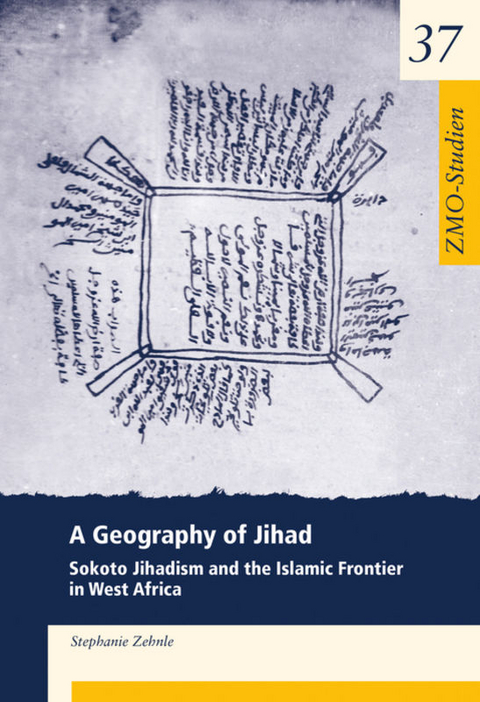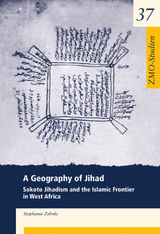A Geography of Jihad
Sokoto Jihadism and the Islamic Frontier in West Africa
Seiten
2020
|
1. Erstausgabe
De Gruyter (Verlag)
978-3-87997-727-7 (ISBN)
De Gruyter (Verlag)
978-3-87997-727-7 (ISBN)
Die Reihe ZMO-Studien veröffentlicht Forschungsergebnisse, die das Forschungsprofil des Leibniz-Zentrum Moderner Orient reflektieren und ergänzen.
This book addresses the Jihad movement that created the largest African state of the 19th century: the Sokoto Caliphate, existing for 99 years from 1804 until its military defeat by European colonial troops in 1903. The author carves out the entanglements of jihadist ideology and warfare with geographical concepts at Africa’s periphery of the Islamic world: geographical knowledge about the boundary between the “Land of Islam” and the “Land of War”; the pre-colonial construction of “the Muslim” and “the unbeliever”; and the transfer of ideas between political elites and mobile actors (traders, pilgrims, slaves, soldiers), whose reports helped shape new definitions of the African frontier of Islam. Research for this book is based on the study of a very wide range of Arabic and West African (Hausa, Fulfulde) manuscripts. Their policies reveal the persistent reciprocity of jihadist warfare and territorial statehood, of Africa and the Middle East. Stephanie Zehnle is Assistant Professor (JProf) of Extra-European History at Kiel University (Christian-Albrechts-Universität). Her work on African and trans-continental history includes research on the history of Islam, human-animal relations, and comics in Africa.
This book addresses the Jihad movement that created the largest African state of the 19th century: the Sokoto Caliphate, existing for 99 years from 1804 until its military defeat by European colonial troops in 1903. The author carves out the entanglements of jihadist ideology and warfare with geographical concepts at Africa’s periphery of the Islamic world: geographical knowledge about the boundary between the “Land of Islam” and the “Land of War”; the pre-colonial construction of “the Muslim” and “the unbeliever”; and the transfer of ideas between political elites and mobile actors (traders, pilgrims, slaves, soldiers), whose reports helped shape new definitions of the African frontier of Islam. Research for this book is based on the study of a very wide range of Arabic and West African (Hausa, Fulfulde) manuscripts. Their policies reveal the persistent reciprocity of jihadist warfare and territorial statehood, of Africa and the Middle East. Stephanie Zehnle is Assistant Professor (JProf) of Extra-European History at Kiel University (Christian-Albrechts-Universität). Her work on African and trans-continental history includes research on the history of Islam, human-animal relations, and comics in Africa.
Stephanie Zehnle, Christian-Albrechts-Universität Kiel.
| Erscheinungsdatum | 12.08.2019 |
|---|---|
| Reihe/Serie | ZMO-Studien ; 37 |
| Zusatzinfo | 8 b/w and 12 col. ill. |
| Verlagsort | Berlin/Boston |
| Sprache | englisch |
| Maße | 148 x 210 mm |
| Gewicht | 922 g |
| Themenwelt | Geisteswissenschaften ► Religion / Theologie |
| Sozialwissenschaften ► Ethnologie | |
| Schlagworte | Africa • Afrika • Afrika,Dschihad,Islam • Dschihad • Islam • Jihad |
| ISBN-10 | 3-87997-727-5 / 3879977275 |
| ISBN-13 | 978-3-87997-727-7 / 9783879977277 |
| Zustand | Neuware |
| Haben Sie eine Frage zum Produkt? |
Mehr entdecken
aus dem Bereich
aus dem Bereich
die Essenz meiner Lehre
Buch | Hardcover (2023)
Verlag Herder
CHF 51,90
eine Philosophie der besten Jahre
Buch | Hardcover (2024)
Carl Hanser (Verlag)
CHF 34,95




